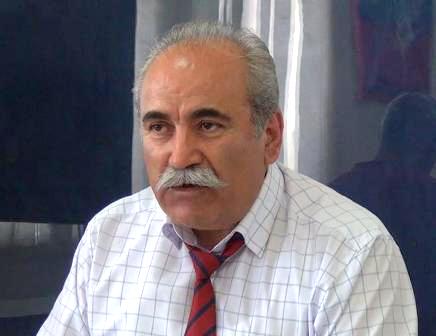 As Turkey and the United States bicker over Turkey’s purchase of an S-400 air defense system from Russia and its cooperation with Moscow in Syria, it is fair to ask whether Turkey and the West are heading for a real separation. It is true that Turkey is drifting away from the West. But it is still too early to say that it is ready to join forces with Russia, particularly in the Middle East.
As Turkey and the United States bicker over Turkey’s purchase of an S-400 air defense system from Russia and its cooperation with Moscow in Syria, it is fair to ask whether Turkey and the West are heading for a real separation. It is true that Turkey is drifting away from the West. But it is still too early to say that it is ready to join forces with Russia, particularly in the Middle East.
Turkey is recalibrating its foreign and regional policy at a time when the Middle East is undergoing a major transformation. Russia appears to be doing the same. As both look for more influence in the region, their relationship will be at times cooperative and at times competitive.
For example, Moscow and Ankara were on the brink of military confrontation late in 2015 after Turkey shot down a Russian jet. Less than a year later, they had mended ties and decided to cooperate on Syria and a range of other issues, including defense and nuclear energy. As the relationship between Turkey and Russia shifts, the West should keep in mind that the two countries’ geopolitical aspirations are largely incompatible, and that cooperation today does not imply cooperation tomorrow.
More than any shared ideological convictions, it is the geopolitics of the Middle East, souring relations with the United States, and the nature of leadership in Ankara and Moscow that have played a central role in shaping Turkish-Russian relations.
First, given Russia’s military involvement in the Syrian civil war in 2015 and its determination to keep President Bashar al-Assad in power, some form of engagement between Russia and Turkey, Syria’s next-door neighbor, was almost inevitable. That engagement has swung between combative and collaborative over time, but the two sides seem to have settled on cooperation in the second half of 2016. By then, Russia virtually controlled northern Syria west of the Euphrates. Turkey has thus had to rely on Russian consent to undertake military operations along its border, first against the Islamic State and then against Syrian Kurdish forces.
Second, the health of Turkish-U.S. relations has a direct impact on Turkey’s friendliness with Russia. When Ankara and Washington are close, Turkey’s appetite for exploring ties with Russia as a geopolitical hedge shrinks. But when Turkey is frustrated with the West—as it is now over U.S. support for Syrian Kurdish forces—it finds in Russia a sympathetic ear.
Finally, Turkish-Russian relations have a personal dimension. The heads of both countries play a decisive and oversized role in foreign policy, and they have established a personal rapport with each other. Although strains in both countries’ relations with the West are long-standing, both leaders have an interest in magnifying them. To be sure, the personal quality of the relationship makes it fragile, since there are still few institutional ties between the countries to support the fledgling partnership. Yet both leaders seem likely to stay in power for the time being, and both seem likely to remain suspicious of the West.
Given the structural factors in Russia and Turkey’s deteriorating relations with the West, it is hard to imagine either country turning on a dime, even after Putin and Erdogan are gone. The damage in Turkey’s relations with the West, after all, will already have been done. And if Turkey does implement the S-400 system and the United States enacts heavy sanctions on Turkey in return, Turkey could come to depend on Russia even more for defense.
The Kremlin doesn’t even need fake news to push its agenda on Turkish social media. Because domestic disinformation is rampant, Moscow has managed to infect both sides of the debate.
There are still gaps between Russia and Turkey that will be difficult to bridge. And these will put limitations on the two countries’ cooperation, especially in the Middle East.
First, since the days of the Ottoman Empire, Turkey has always sought to deny Russia a significant presence to the south or in the eastern Mediterranean. But that is exactly where Russia is increasingly active—from Syria to Libya, Egypt, and Algeria. As Russian influence grows, Turkey’s room for maneuvering in the region will shrink. Turkey’s recent accommodation of Russia is historically and geopolitically unusual, and it will not likely last forever.
Second, the two countries’ preferred outcomes in the Middle East are at odds. From the Assad regime in Syria to the regime of President Abdel Fattah al-Sisi in Egypt, from Khalifa Haftar’s forces in Libya to the Palestinian Liberation Organization in Palestine, Russia has consistently demonstrated a preference for secular forces. In contrast, Turkey, which opposes Assad, decried Sisi’s coup against the Muslim Brotherhood-linked government of former Egyptian President Mohammed Morsi, and supported Hamas, clearly champions Islamist forces. Starting with disagreement over the future of Syria’s Idlib province, many thorny geopolitical issues are set to drive the countries apart.
As an energy-exporting nation, Russia wants to keep energy prices high. That’s why the country is quickly developing closer relations with the Arab members of OPEC, particularly Saudi Arabia, whose King Salman became the first ruling Saudi monarch to visit Russia late in 2017. Through close coordination on the price and production levels of oil, Russia and Saudi Arabia aim to keep the energy prices up.
Meanwhile, Turkey is a major energy-importing country. It prefers low energy prices, particularly given its staggering current account deficit, which is partially caused by its increasing energy needs.
Given their largely opposing interests in the Middle East, Russian and Turkish cooperation faces real limits. Although the two countries will likely continue to be partners—and may draw closer the more the United States pushes Turkey away—there will be plenty of opportunities for the West to exploit their differences. One of the easiest may be Turkey and Russia’s differences over the future of Syria’s Idlib province. Both Turkey and the West have an interest in preventing a large-scale Russian military offensive in this province. Such an operation could produce a humanitarian disaster and drive large numbers of refugees toward Turkey’s border.
Undeniably, Turkish-Western relations have undergone a major change in recent years. The old status quo will not come back. Nor, however, will the relationship break—and especially not because of Turkey’s ties with Russia, which are loose at best.
Galip Dalay
is a visiting scholar at the University of Oxford, IPC-Mercator fellow at the German Institute for International and Security Affairs (SWP), and non-resident fellow at Brookings Institution, Doha Center.







